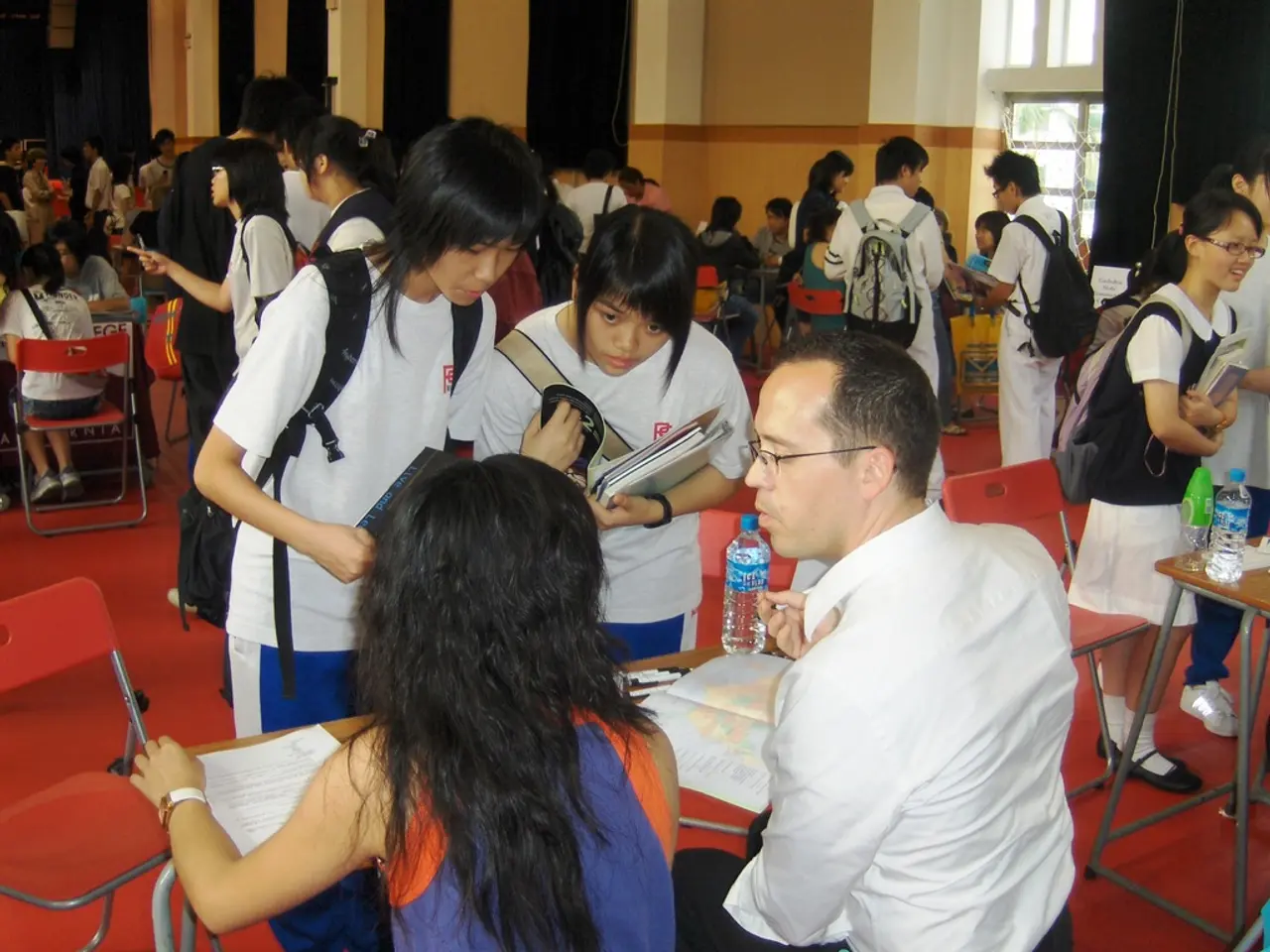Strengthening the Bonds Between Educators and Pupils for Optimal Academic Success
In primary education, a strong foundation of positive teacher-student relationships plays a crucial role in fostering a supportive learning environment that encourages student engagement and motivation. This approach, when effectively implemented, can also reduce behavioral issues and foster resilience.
Educators can cultivate and maintain these relationships by prioritizing emotional connection, trust, clear communication, and personalized support, both in traditional classrooms and online learning environments.
One key strategy is showing genuine interest in students’ lives and interests outside academics, which helps build rapport and a sense of belonging. Modeling vulnerability and sharing personal learning experiences can foster empathy and trust. Setting clear, high expectations for behavior and academic work, while assuring students they can meet them, creates a structured yet supportive atmosphere.
Responding calmly and respectfully to misbehavior helps maintain classroom civility and emotional safety. Being available beyond class time for student and family engagement enhances support and connection. Building trust and empathy consistently creates a safe space where students feel confident to express themselves and seek help.
Personalizing learning through goal-setting and feedback empowers students to take ownership of their learning journey and fosters intrinsic motivation and resilience. Providing different types of teacher support—informational, instrumental, emotional, and appraisal—are crucial to student self-regulated learning and psychological needs for autonomy, competence, and relatedness.
In online learning contexts, these principles translate into intentional, frequent communication methods such as personalized messages, virtual check-ins, and creating interactive, engaging digital spaces that foster community and belonging.
For practical classroom actions, simple daily routines like greeting each student by name with eye contact and engaging them in meaningful conversations build strong relational foundations. These steps, scaffolded with ongoing understanding and adaptation to students' unique needs, foster positive relationships that increase students’ academic engagement, motivation, and overall school connection.
By consistently applying these approaches, educators support not only academic success but also students' social and emotional growth, which is especially critical in primary education settings where foundational attitudes toward learning and school are developed.
To enhance teacher-student relationships for future generations, it is paramount to adopt a proactive approach. Understanding the dynamics of teacher-student relationships is essential for educators aiming to cultivate a positive atmosphere in the classroom. Incorporating student feedback is vital in nurturing open communication and empowering students. Healthy teacher-student connections create safe environments where students feel valued and respected.
Positive teacher-student relationships significantly influence a child's social development during primary education, contributing to effective communication skills and promoting emotional development. By prioritizing trust, respect, and open communication, teachers can significantly impact their students' educational experiences. With technological advancements becoming integral in education, teachers should leverage digital tools to maintain connections.
In conclusion, by fostering an environment of trust, respect, and support, active listening, setting clear expectations, and providing regular feedback, educators can establish positive teacher-student relationships that contribute to academic success and social and emotional development in primary education.
Developing strong teacher-student relationships is crucial for fostering a supportive learning environment in both traditional and online education-and-self-development settings such as e learning. Professional development that emphasizes emotional connection, trust, clear communication, personalized support, and active listening can enhance personal-growth and improve student engagement and motivation. Incorporating student feedback, understanding their unique needs, and adapting teaching methods can create a safe space where students feel valued and empowered in their learning journey, fostering intrinsic motivation, resilience, and overall school connection.




